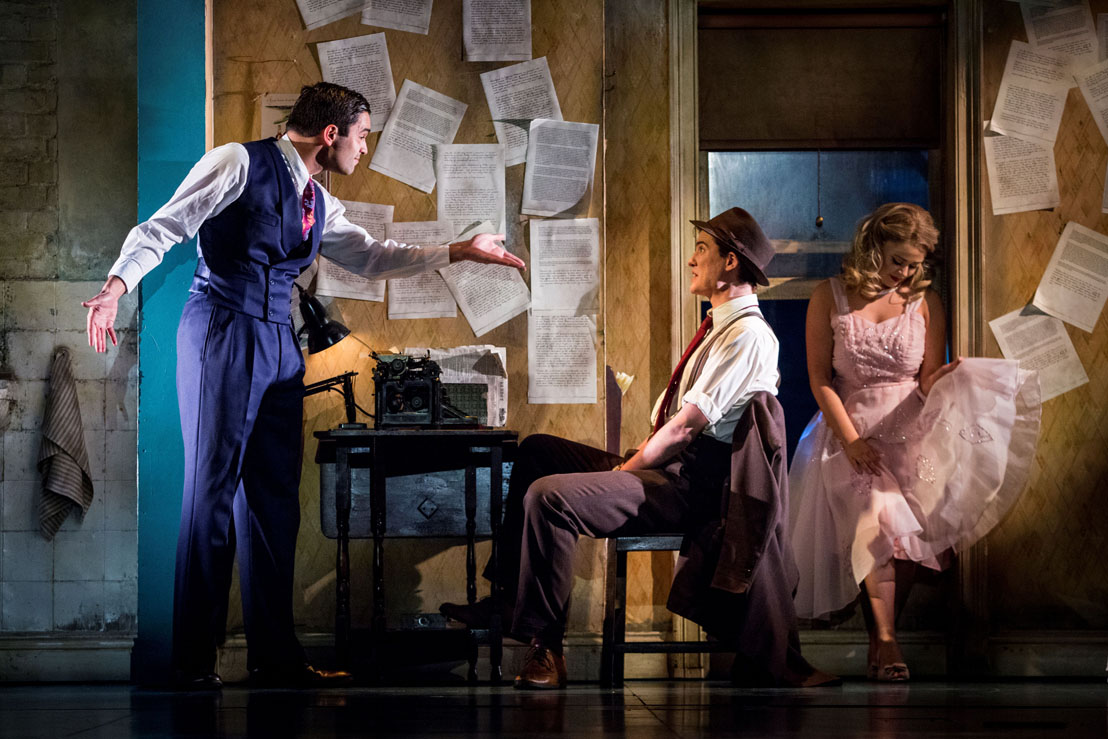
You wouldn’t know it, but Emily Atack is making her stage debut in this recast touring production from Leicester’s Curve Theatre. She has not allowed the iconic status of the character of Holly Golightly to prevent her from making the part her own. She captures that breezy self-belief of the mildly delusional in her portrayal of the country girl who has come to the big city with a dream and remade herself – name and all – as a fashionable socialite with no visible means of support beyond the men of various shapes and sizes who fall under her spell.
The character bears no small resemblance to Christopher Isherwood’s, Sally Bowles (a debt seemingly acknowledged by Capote) in her fragile grasp on reality, the provocative unconventionality, the eagerness to shock and the unrealistic reach of her ambition given her circumstances. As a woman with social climbing as her driving force the character no doubt also reflects part of the personality of Capote himself. Tellingly he claimed that Holly was his favourite creation.
In a novel the character (as opposed to the voice) of the narrator is of little importance, but on the stage it takes on greater significance. Introversion is not the most readily usable of qualities in a leading man and is always going to be a challenge for actor and director when there is little in the way of comedy to endear a gauche and diffident character to the audience. Matt Barber takes the route of an overcompensating heartiness as he guides us through recollections of his New York neighbour. It is an odd mix, which through no fault of the actor is not quite enough to hold the play together; chunks of narrative rarely draw one in.
In the end what is, in the novel, a detailed study of one of the most successful fictional characters of the mid-twentieth century, lacks, on the stage, the momentum to keep us interested. The songs, People Will Say We’re in Love, Moon River, and the Grant Olding composition, Hold Up My Dying Day, whilst touchingly performed, seem somehow plonked in the story and have little dramatic impact. Nor can some good performances save the day: Victor McGuire’s sentimental bartender is, on the stage, a mere device and Robert Calvert’s deserted, much older husband, seemed not merely out of place in the big city, but out of place in the show with an authenticity which drew some much needed sympathy from the audience.
Richard Greenberg’s adaption is a respectful nod to a literary gem, but I couldn’t help thinking that a full-blown musical might have had more chance of bringing the thing to life given the different demands of the stage. ★★★☆☆ Graham Wyles 18th May 2016
Photo Sean Ebsworth Barnes

